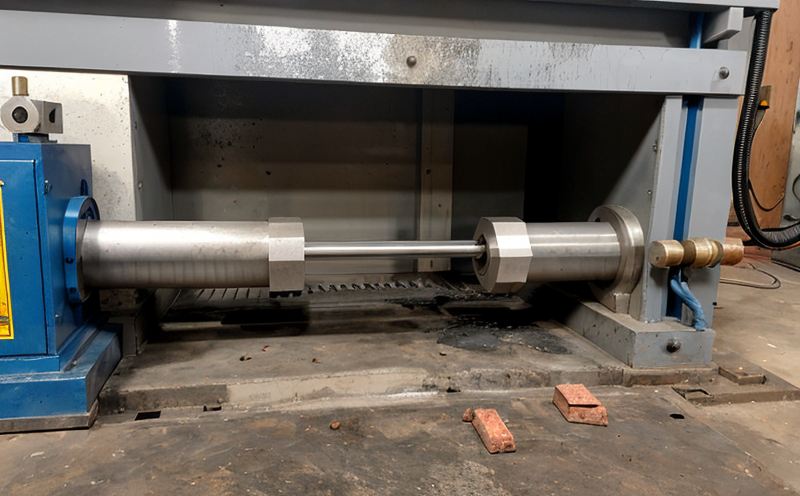ISO 13802 Instrumented Impact Testing of Plastics Validation Method Development Test
The ISO 13802 standard specifies the method for determining the upper yield strength and fracture toughness of plastics using instrumented impact testing. This service is essential for validating the mechanical properties of plastic materials, providing critical data to ensure quality control, material selection, and structural integrity in various industrial applications.
Instrumented impact testing measures the energy absorbed during a controlled impact on a specimen, which provides insight into the material's toughness and resistance to fracture. This service is particularly important for industries such as automotive manufacturing, aerospace, construction, and consumer goods where plastic components are used extensively. By validating the mechanical properties of plastics through this method, manufacturers can ensure that their materials meet stringent quality standards and perform reliably under expected conditions.
The testing process involves preparing specimens according to specific dimensions and tolerances outlined in ISO 13802. These specimens are then subjected to a controlled impact using an instrumented pendulum or similar apparatus. The force-displacement curve generated during the test is analyzed to determine key mechanical properties such as upper yield strength (UYTS) and fracture toughness (KIC).
Our laboratory utilizes state-of-the-art testing equipment compliant with ISO 13802, ensuring accurate and reliable results. Our team of experts specializes in interpreting these results and providing comprehensive reports that meet the needs of our clients.
| Parameter | Description |
|---|---|
| Upper Yield Strength (UYTS) | The maximum stress a material can withstand without yielding to plastic deformation. |
| Fracture Toughness (KIC) | A measure of the energy absorbed by a material before fracture, indicating its resistance to crack propagation. |
By validating these critical properties, our clients gain confidence that their materials will perform as expected in real-world applications. This service is particularly beneficial for R&D teams looking to optimize material performance or quality managers ensuring compliance with industry standards.
In addition to providing accurate test results, we offer tailored validation methods and protocols to meet the specific requirements of each client project. Our goal is to deliver high-quality data that supports informed decision-making processes within your organization.
Scope and Methodology
| Scope | Description |
|---|---|
| Test Specimens | Precisely dimensioned samples prepared according to ISO 13802 specifications. |
| Testing Equipment | Instrumented pendulum or similar apparatus capable of measuring force-displacement curves during impact testing. |
| Data Analysis | Comprehensive evaluation of the force-displacement curve to determine UYTS and KIC values. |
| Acceptance Criteria | Description |
|---|---|
| UYTS | The upper yield strength must meet or exceed specified minimum values for each material type. |
| KIC | Fracture toughness should be consistent with expected performance in intended applications. |
This service covers the entire process from specimen preparation to final report generation. Our team ensures that all steps adhere strictly to ISO 13802 guidelines, producing reliable and repeatable results.
Benefits
The benefits of this service extend far beyond mere compliance with industry standards; it provides valuable insights into the performance characteristics of plastic materials. Here are some key advantages:
- Informed Decision-Making: Accurate data helps R&D teams make informed decisions about material selection and optimization.
- Quality Assurance: Ensures that manufactured parts meet stringent quality standards, reducing the risk of defects.
- Cost Savings: Early identification of material issues can save time and money by avoiding costly rework or recalls.
- Regulatory Compliance: Demonstrates adherence to international standards, enhancing market access for your products.
In summary, this service offers a comprehensive approach to validating the mechanical properties of plastics, supporting both technical innovation and regulatory compliance.
Customer Impact and Satisfaction
Our customers benefit significantly from our ISO 13802 instrumented impact testing validation method development test in several ways:
- Enhanced Product Quality: By ensuring that materials meet stringent performance standards, we contribute to the overall quality of products reaching end-users.
- Increased Efficiency: Rapid and accurate testing reduces lead times, allowing for quicker feedback loops within development cycles.
- Better Decision-Making: Access to detailed test results empowers stakeholders across departments with reliable data for strategic planning.
- Competitive Advantage: Demonstrating compliance with global standards positions your company favorably in competitive markets.
We strive to exceed expectations by delivering precise, reproducible results that align perfectly with our clients' requirements. Our commitment to excellence ensures customer satisfaction and fosters long-term partnerships.





